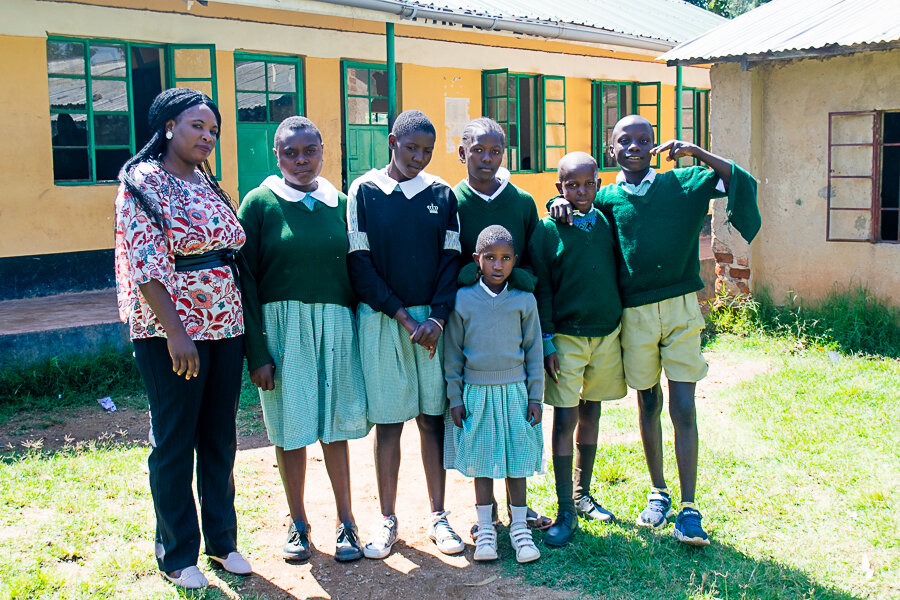By Erick Bosire | Program Officer
ACTIVITY PROCEEDINGS
The primary objective of this project was to enhance the educational experience of HIV-positive orphaned students. Teachers of guidance and counseling, principals, and other school personnel received training from WE REACH so that they could better assist students living with HIV and provide a more welcoming learning environment for those students. Schools were instructed to establish Health clubs as a means of tackling school-wide health and stigmatization issues. The primary objective of the school visit was to ensure that the Health clubs are active and to ascertain whether or not OVCs had been integrated into them.
Nearly all the visited schools had already begun putting into practice the seminar's recommendations. In other words, they established Health clubs and welcomed students from a wide range of academic backgrounds and health issues. The goal was to lessen the prejudice and hostility directed toward certain students because of their health, HIV status or family history, or other special circumstances. The most vulnerable orphans in those schools were identified through a collaborative effort between the school administration and the organization, which then provided support services to the students in order to assist them overcome the obstacles they face at both school and at home.
On the last Thursday of every month, students from Kakamega, Kilimo, and Rosterman primary schools meet as a Health club to learn about and discuss topics including menstrual hygiene, water-borne infections, prejudice, and stigma. Students' attitudes toward HIV have begun to shift as a direct result of those classes. The vast majority of people are aware that HIV cannot be spread through casual contact such as shaking hands, playing together, or sharing utensils or writing materials.
The members of the clubs are now serving as "ambassadors" in their respective schools, raising awareness among their peers and parents about bullying, exclusion, and other forms of bullying that affect students. There is still a problem with communication between parents and educators, despite the fact that this has become a major threat to the student's health. Specifically, opportunistic infections can develop if an OVC with HIV doesn't take their medication as prescribed. Due to the compromised immune system, many infections can be fatal.
The group promised the school administration that they will invite the parents and caregivers of the OVCs through their collaboration with the Ministry of Health in Kakamega County, in the office of the Sub County coordinator of HIV and STIs. In order to educate them on HIV's effects on students' health and the significance of coming forward about their status. The health of OVCs improves as a result of this assistance, particularly for those OVCs who are living with HIV. There will be classes for parents and caregivers on how to grow a healthy kitchen garden and feed orphans.
WHAT WE'VE LEARNED
CHALLENGES
ACTIONS AND SUGGESTIONS
By Edwin Nyongesa | Project officer
By Edwin Ngongesa | Project Officer
Project reports on GlobalGiving are posted directly to globalgiving.org by Project Leaders as they are completed, generally every 3-4 months. To protect the integrity of these documents, GlobalGiving does not alter them; therefore you may find some language or formatting issues.
If you donate to this project or have donated to this project, you can receive an email when this project posts a report. You can also subscribe for reports without donating.
